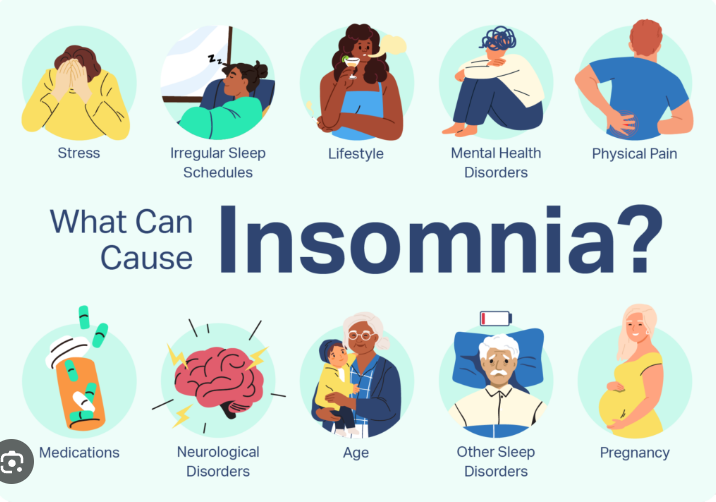What to know about symptoms, causes, and treatments of insomnia for sleeplessness in its many forms
You’ve probably had insomnia if you’ve ever wished to sleep while lying awake at night. It might be unbearable to suffer from sleep deprivation if you frequently battle with this common sleep problem. The irony is in the fact that your attempts to fall asleep tend to push the comforting embrace of sleep farther from your grasp.
Even though being up at night could be terrible, you can find some tiny solace in the knowledge that you’re not alone. According to research, 20 to 30 percent of individuals may experience insomnia at some point in their lives. Dr. Alex Dimitriu is a sleep medicine specialist who holds dual board certifications in psychiatry and sleep medicine and is the founder of Menlo Park Psychiatry & Sleep Medicine in California.
Also read-Sleep Apnea : A Patient’s Guide To Sleep Apnea And Its Symptoms
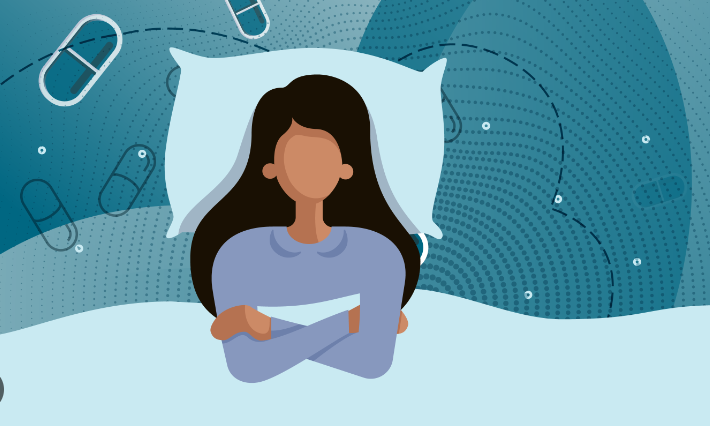
What is insomnia?
Even though we all know that getting enough sleep is essential to preserving our health and wellbeing, some people have less of a desire to sleep than others. “Not everyone has the same tendency to fall asleep,” states Dr. Jerald H. Simmons, a neurologist and the founder of Comprehensive Sleep Medicine Associates, a clinical practice with offices in Houston and Austin. Dr. Simmons is triple board-certified in neurology, epilepsy, and sleep medicine. Both this so-called sleep drive and each person’s unique sleep rhythm are subject to variation. This explains why some people prefer the morning hours while others are night owls. In certain individuals, a reduced inclination towards sleep can be readily disturbed by various circumstances, perhaps resulting in the emergence of insomnia.
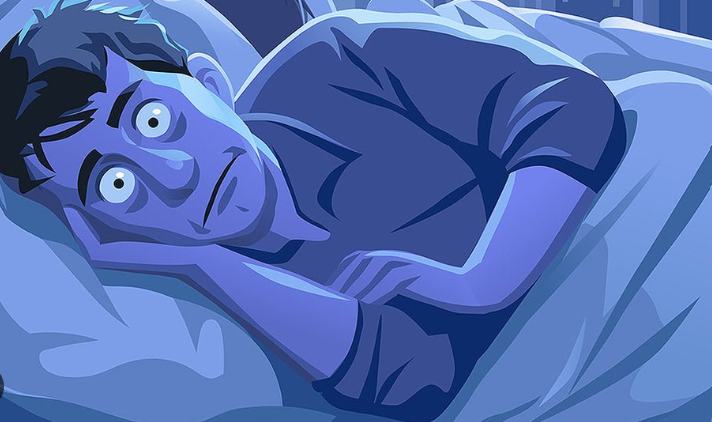
Causes
Dr. Jesse Mindel, an assistant professor of medicine and neurology at the Ohio State University Wexner Medical Center, states that “the majority of people who have insomnia have a cause.” Additionally, a variety of events, both acute and chronic, can contribute to insomnia, such as:
- Changes to your work or travel schedule. Jet lag and frequent changes to your work schedule, as can happen with shift work, can induce insomnia in some people.
- Concerns over work, school or health issues. There’s a reason why the saying “to lose sleep over it” exists. Concerns about any number of aspects of your life can lead to disrupted or poor sleep.
- Concerns about not sleeping enough. Simmons says some people “develop performance anxiety” about sleep and their insomnia is exacerbated by that anxiety. “They’re so worried they can’t fall asleep that they can’t fall asleep,” and it becomes a self-perpetuating problem.
- Poor sleeping habits. Engaging in stimulating activities in bed or being inconsistent in your sleep-wake pattern can lead to insomnia.
- Food and drink. How much, what and when you eat can also disrupt the quality of your sleep. Substances such as caffeine, nicotine and alcohol can have an outsized impact on your sleep quality, especially if you’re using them in the evening or just before bed.
- Medications. Some medications, particularly certain anti-depressants, steroid medications used for asthma, allergy medications, weight loss drugs and some blood pressure medications, can cause insomnia as a side effect.
- Years old. Many post-menopausal women report feeling insomnia or a shift in sleeping patterns that’s tied to changes in their hormone levels. Some people also seem to have more problems sleeping as they get older.
- Health issues. Insomnia can be brought on by some medical disorders, such as sleep apnea, a respiratory problem that causes frequent nighttime awakenings. Another ailment that might cause sleeplessness is restless leg syndrome.
- Diseases of the mind. Depression and anxiety can both have a significant negative influence on your ability to fall asleep and stay asleep.
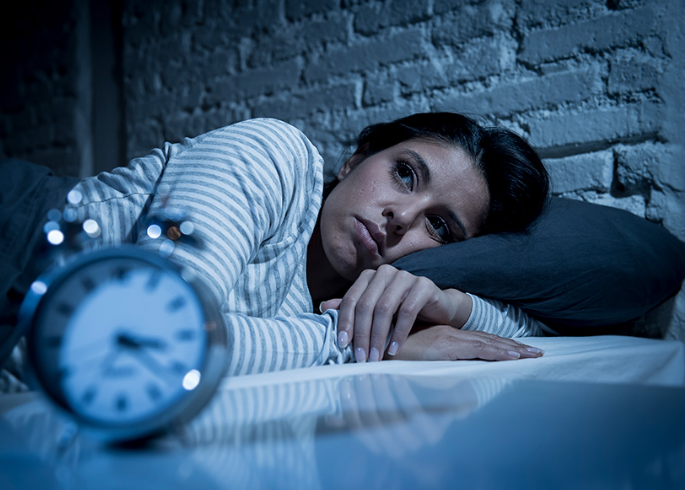
Symptoms
Most people who have insomnia are well aware of the difficulties they’re having sleeping. Common symptoms include:
- Difficulty falling asleep.
- Waking up during the night and having difficulty returning to sleep.
- Waking too early in the morning.
- Not feeling refreshed after sleeping.
- Grogginess or tiredness during the day.
- Depression, anxiety and irritability.
- Cognitive issues such as difficulty focusing or concentrating on tasks.
- Making lots of mistakes in your work or noticing an increase in accidents or clumsiness.
- Anxiety about not getting enough sleep.
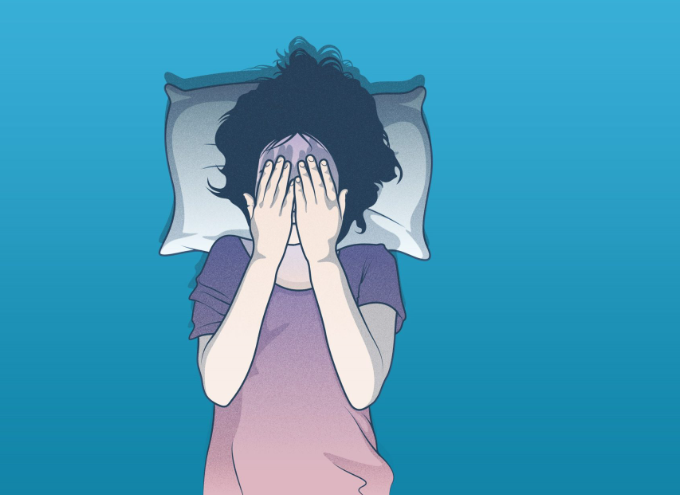
Testing and diagnosis
It may be time to see your doctor for an assessment if you’re having trouble falling asleep. Your doctor will probably conduct a physical examination and obtain a medical and sleep history in order to determine the cause of your insomnia, as there could be numerous contributing variables. A sleep test may also be given to you; in certain circumstances, this can be completed at home, but in others, a sleep lab may be required. In order to monitor your vital signs and search for other indicators of a physical disturbance, such as variations in breathing or heart rate that might be the source of your nighttime awakenings, these tests usually entail sleeping with sensors attached to your body.
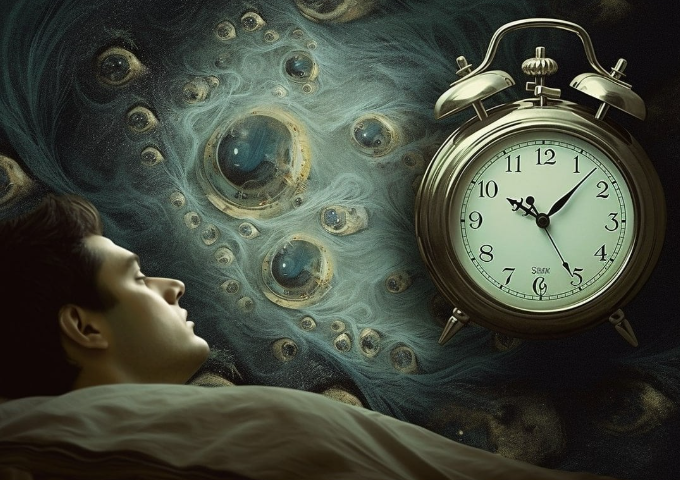
Also read-Pediatricians Give Parents These Eight Goals To Help Them “Start The Year Strong”
images source: Google
Disclaimer: The opinions and suggestions expressed in this article are solely those of the individual analysts. These are not the opinions of HNN. For more, please consult with your doctor







